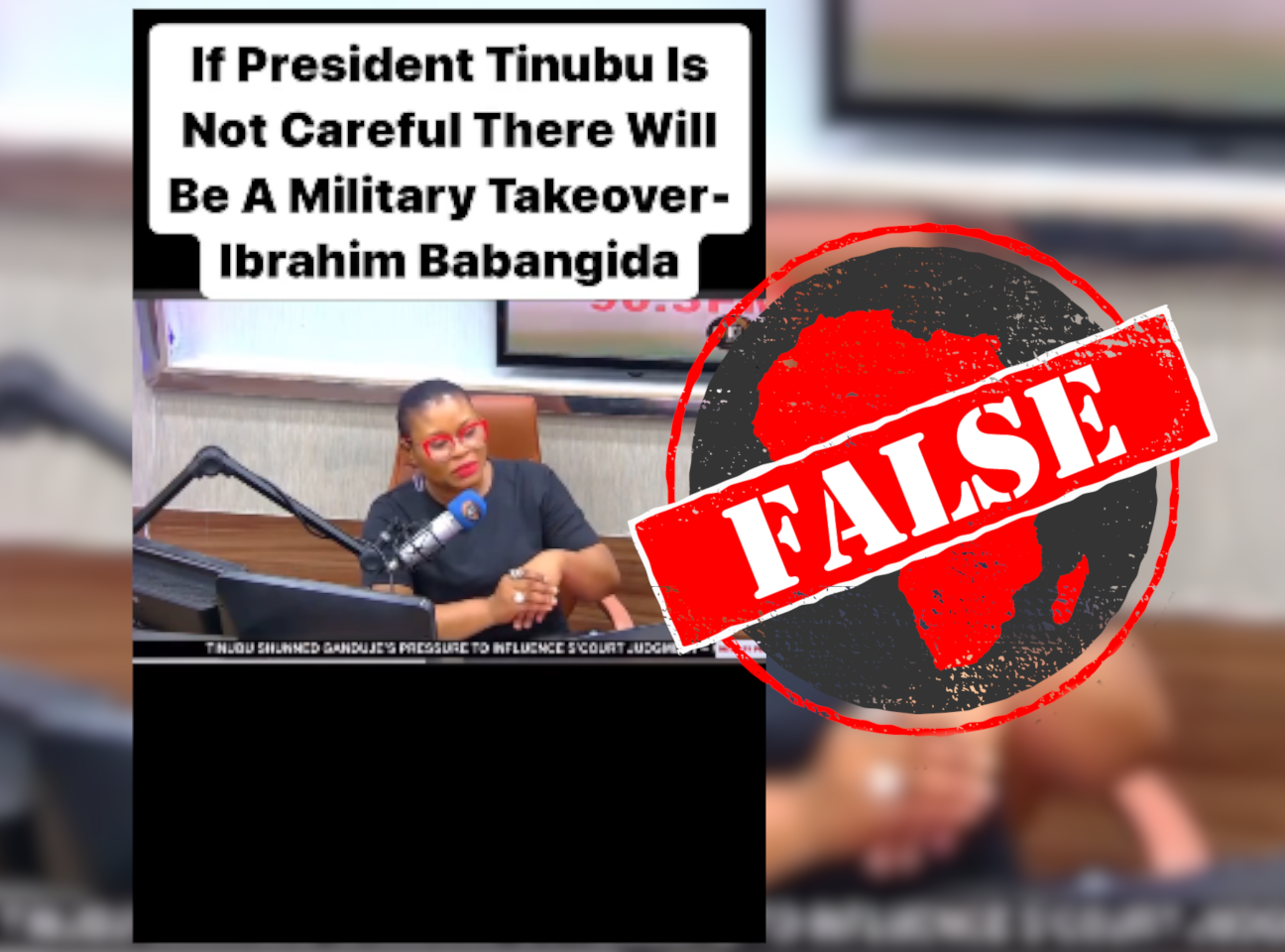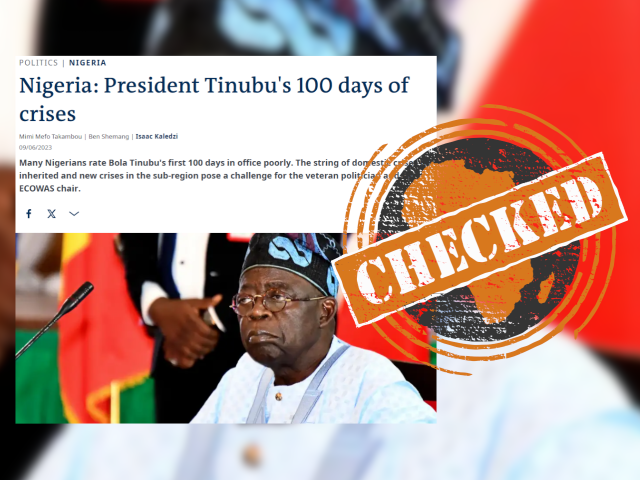IN SHORT: Contrary to online claims, Nigeria's ex-military ruler Ibrahim Babangida did not warn the president of an army takeover. Evidence suggests that he instead advocated for democratic politics.
Nigeria's post-independence politics were dominated by the military until 1999, when a democratically elected government took over.
Ibrahim Babangida was one of the country's military rulers during this period. He was in power for eight years, from 1985 to 1993.
In February 2024, a radio presenter on radio station Voice of the People 90.3FM claimed that Babangida had warned Nigeria's president, Bola Tinubu, of an imminent military takeover.
Tinubu has been in power since May 2023.
Other Facebook posts echoed the claim here, here, here, and here.
One of the posts read: “If President Tinubu is not careful, there will be a Military Takeover -Ibrahim Babangida.”
Babangida has been an influential figure in Nigerian politics and a statement from him about the possibility of a military takeover could significantly impact the country's political landscape.
But did the former military ruler really say that? We checked.

‘Baseless, result of unfounded speculations’
In January 2024, barely a month before these allegations surfaced online, Babangida said on television that he was convinced there would be no military interference in Nigerian politics.
“Nigerians have become more interested in becoming a truly democratic nation,” he said.
In a statement Deyemi Saka, Babangida's spokesperson, said the military leader had not warned Tinubu of an army takeover.
The 15 February statement read, in part: “I would like to clarify to the general public that these reports are baseless and the result of unfounded speculations by certain individuals with malicious intent.”
Saka said the former military leader would have used proper channels of communication if he wanted to make a statement.
No credible media have reported such a statement by Babangida, which would have been the case if it were true.
Republish our content for free
For publishers: what to do if your post is rated false
A fact-checker has rated your Facebook or Instagram post as “false”, “altered”, “partly false” or “missing context”. This could have serious consequences. What do you do?
Click on our guide for the steps you should follow.
Publishers guideAfrica Check teams up with Facebook
Africa Check is a partner in Meta's third-party fact-checking programme to help stop the spread of false information on social media.
The content we rate as “false” will be downgraded on Facebook and Instagram. This means fewer people will see it.
You can also help identify false information on Facebook. This guide explains how.




Add new comment